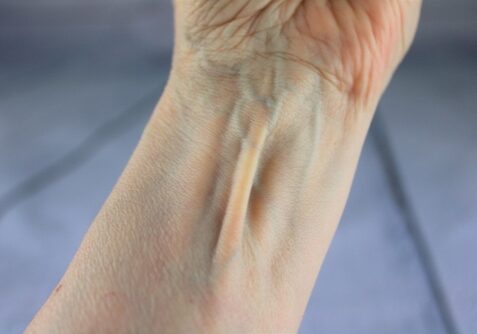Barlow, S.J., Scholtz, J. & Medeiros (2020). Wrist weight-bearing tolerance in healthy adults. Journal of Hand Therapy, xxx currently in press.
The Skinny
Wrist pain and instability are common occurrences and can occur with acute or chronic injuries. This leads to significant dysfunction, including the inability to tolerate axial loading through the upper extremity. There is no reported clinical test for hand therapists to measure axial loading from decreased wrist stability. The purpose of this study was to determine normative values for non weight bearing upper extremity.
In the Weeds
465 subjects were enrolled in the study from around the world. Healthy adults ranging in age from 18 to 64 were enrolled in the study. Exclusion criteria included current wrist pain or a history of wrist pain, previous wrist fracture, rheumatoid arthritis, breastfeeding, and/or pregnancy.
For testing, the subjects were in a standing position with the elbow and wrist in extension. They were asked to press down on an analog scale making sure their middle finger pointed toward the 12 o’clock position. This was done a total of three times on both of the upper extremities.

Bringing it Home
This study defines wrist weight-bearing tolerance norms for healthy adults, including males and females in the age range of 18-64. Knowing the weight-bearing norms could help identify wrist pathology and be another objective measure to support various hand therapy interventions (weight well hand therapy).
This study was well done, and there was a large sample size from various locations around the world. One potential conflict was cited in the article
“journal policy and ethical obligation require reporting that one of the authors of this paper (MW) is the patent owner of a company WristWidget. The business may be positively affected by the results reported in this manuscript.” (Barlow & et al, 2020).
Overall I really enjoyed reading this article, and I can say that it will impact my clinical practice. Nice job!
If you are going to purchase a scale, I would recommend making sure it has a large area to place the hand without covering the dial or numbers (mine doesn’t have enough room to keep my hand on the black area without cover the numbers). Also, make sure it is analog, not digital!
3 Comments
Leave a Comment
More To Read
Effects of different stretching techniques for improving joint range of motion.
Reference: Oba, K., Samukawa, M., Abe, Y., Suzuki, Y., Komatsuzaki, M., Kasahara, S., Ishida, T., & Tohyama, H. (2021). Effects of Intermittent and Continuous Static Stretching on Range of Motion and Musculotendinous Viscoelastic Properties Based on a Duration-Matched Protocol. International journal of environmental research and public health, 18(20), 10632. https://doi-org.libproxy.nau.edu/10.3390/ijerph182010632 The Skinny: This study used a cross-over…
Read MoreTherapeutic Exercise vs Therapeutic Activity
What is the difference between therapeutic exercise vs therapeutic activity? Therapeutic exercise is billed as 97110 and Therapeutic activity is billed as 97530. Both are CPT codes that are commonly used in occupational and physical therapy billing. These codes are very similar and are often confused. So, when and what do you document for each…
Read MoreExploring Unique Hand Anatomy
Exploring Unique Hand Anatomy The human hand is a marvel of intricate design with a combination of fine motor capabilities and strength that enable us to perform fine motor tasks ranging from delicate surgery to more gross motor tasks such as carrying heavy loads. However, no two hands are exactly alike. Anatomical variations while they…
Read MoreSign-up to Get Updates Straight to Your Inbox!
Sign up with us and we will send you regular blog posts on everything hand therapy, notices every time we upload new videos and tutorials, along with handout, protocols, and other useful information.






What are the norms?
What is the result?
Am I wrong …………I could not find the weight bearing norms? You did a nicht Job 🙂 thank you for the Article…